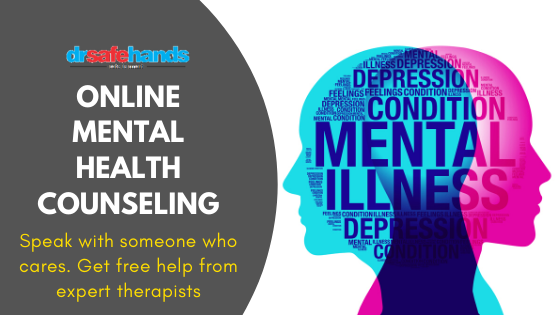In the digital age, where connectivity knows no bounds, individuals grappling with depression can find solace and support through online resources. This blog post is your compass through the vast landscape of the internet, unveiling the best depression online therapy . Let's embark on a journey to discover the platforms, communities, and tools that can serve as beacons of hope for those seeking assistance.
Understanding the Impact of Depression
1. The Silent Struggle:
Depression is often a silent struggle, affecting millions worldwide. Its impact goes beyond the individual, touching the lives of friends, family, and communities. Recognizing the need for accessible and effective support, online resources have emerged as lifelines for those navigating the shadows of depression.
2. Breaking the Stigma:
Online platforms play a crucial role in breaking the stigma surrounding mental health. They create spaces where individuals can share their experiences, seek guidance, and access resources anonymously, fostering a sense of community and understanding.
Unveiling the Best Online Help Resources for Depression
1. 1. National Suicide Prevention Lifeline (1-800-273-TALK):
A vital resource for immediate help, the National Suicide Prevention Lifeline provides a confidential and toll-free hotline. Trained counselors are available 24/7 to offer support, guidance, and a listening ear to those in crisis.
2. BetterHelp:
BetterHelp is an online counseling platform that connects individuals with licensed therapists through secure and private virtual sessions. The platform offers a convenient and flexible way to access professional mental health support from the comfort of one's own space.
3. Depression and Bipolar Support Alliance (DBSA):
DBSA is an online community that provides support, resources, and education for individuals living with depression and bipolar disorder. Forums, webinars, and peer support groups offer opportunities for connection and shared understanding.
4. Headspace:
Headspace is a mindfulness and meditation app that can be a valuable tool in managing the symptoms of depression. With guided meditations and stress-relief exercises, Headspace promotes mental well-being and relaxation.
5. 7 Cups:
7 Cups is an online emotional support platform that connects users with trained listeners. Individuals can anonymously chat with a listener about their feelings, providing an outlet for expressing emotions and receiving empathetic support.
6. Mind.org.uk:
Mind.org.uk is a comprehensive online resource offering information, advice, and support for anyone affected by mental health issues, including depression. The platform covers a wide range of topics, from understanding symptoms to seeking help.
Your Guide to Online Peer Support
1. Reddit Communities:
Reddit hosts numerous communities where individuals share their experiences with depression and offer support to one another. Subreddits like r/depression and r/mentalhealth create virtual spaces for open discussions, advice, and camaraderie.
2. Online Forums:
Various mental health forums, such as Psych Central and HealthBoards, provide platforms for individuals to connect, share stories, and seek advice. These forums often feature threads on coping strategies, treatment options, and personal journeys.
The Human Touch: Personal Stories of Triumph
1. Real-Life Narratives:
Integrating real-life narratives and testimonials from individuals who have found support through online resources adds a human touch to the discussion. Personal stories inspire hope and illustrate the transformative power of seeking help.
2. Shared Journeys:
Highlighting shared journeys of resilience and recovery fosters a sense of community. Knowing that others have faced similar challenges and emerged stronger can instill a sense of hope in those currently navigating the complexities of depression.
Online Resources for Everyday Coping
1. Podcasts and Webinars:
Podcasts and webinars featuring mental health experts provide valuable insights and coping strategies. Platforms like TED Talks and Mental Health America offer a wealth of content that individuals can access at their own pace.
2. Self-Help Apps:
Apps like MoodTools and Woebot offer interactive tools, mood tracking, and cognitive-behavioral therapy exercises. These self-help resources empower individuals to take an active role in managing their mental health.
Conclusion: A Virtual Haven of Support
In conclusion, the best online help resources for depression form a virtual haven of support, understanding, and guidance. Whether through hotlines, counseling platforms, or online communities, these resources serve as lifelines for individuals facing the challenges of depression. By embracing the power of technology and connectivity, we can collectively contribute to creating a world where seeking help for mental health is not only accepted but encouraged. Remember, you are not alone on this journey – help is just a click away.
#depression online therapy, #online therapist, #talk to a therapist online, #online therapy service





Comments